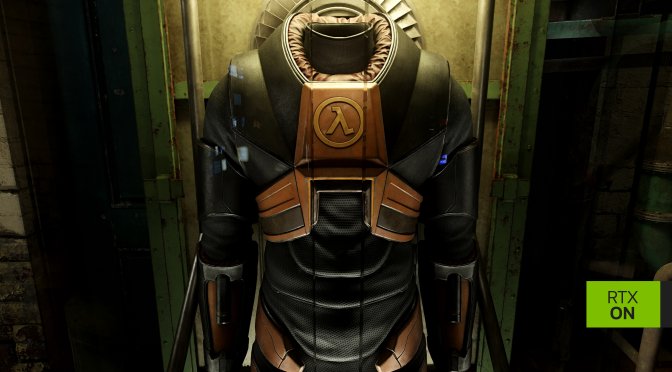NVIDIA has shared the CES 2024 trailer for Half-Life 2 RTX which showcases the full path tracing effects of this upcoming remaster. This trailer has some comparison screenshots which will give you an idea of the graphical improvements that path tracing will bring to the table.
Half-Life 2 RTX will also support DLSS 3 Frame Generation and DLSS 3.5 Ray Reconstruction. By using Frame Generation, RTX40 series owners will be able to improve the game’s performance. Since it will be using full Path Tracing, you’re going to need it. And no, there is no word on whether it will support FSR 3.0. However, owners of older RTX GPUs will be able to use the “DLSS 3 to FSR 3.0” Mod. From what we’ve seen, this mod works fine in games that support Path Tracing.
Half-Life 2 RTX is being developed by four of Half-Life 2’s top mod teams, now known as Orbifold Studios. This remaster will also come with new assets. These assets will aim to come close to the original ones but also make the game look on par with most modern-day triple-A titles.
From what we know Orbifold Studios rebuilt materials with Physically Based Rendering (PBR) properties. Not only that but the team added extra geometric detail via Valve’s Hammer editor. In Half-Life 2 RTX, average world textures have 8X the pixels, and assets like the suit feature 20X the geometric detail of the original game.
Sadly, there is still no word on when Half-Life 2 RTX will come out. As usual, though, we’ll be sure to keep you posted.
Enjoy the trailer and stay tuned for more!

John is the founder and Editor in Chief at DSOGaming. He is a PC gaming fan and highly supports the modding and indie communities. Before creating DSOGaming, John worked on numerous gaming websites. While he is a die-hard PC gamer, his gaming roots can be found on consoles. John loved – and still does – the 16-bit consoles, and considers SNES to be one of the best consoles. Still, the PC platform won him over consoles. That was mainly due to 3DFX and its iconic dedicated 3D accelerator graphics card, Voodoo 2. John has also written a higher degree thesis on the “The Evolution of PC graphics cards.”
Contact: Email

